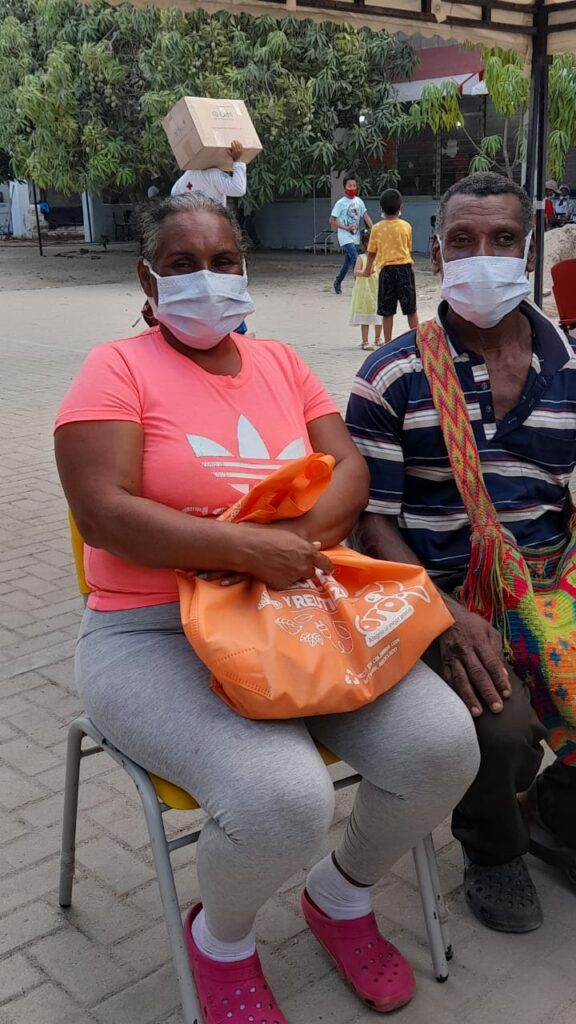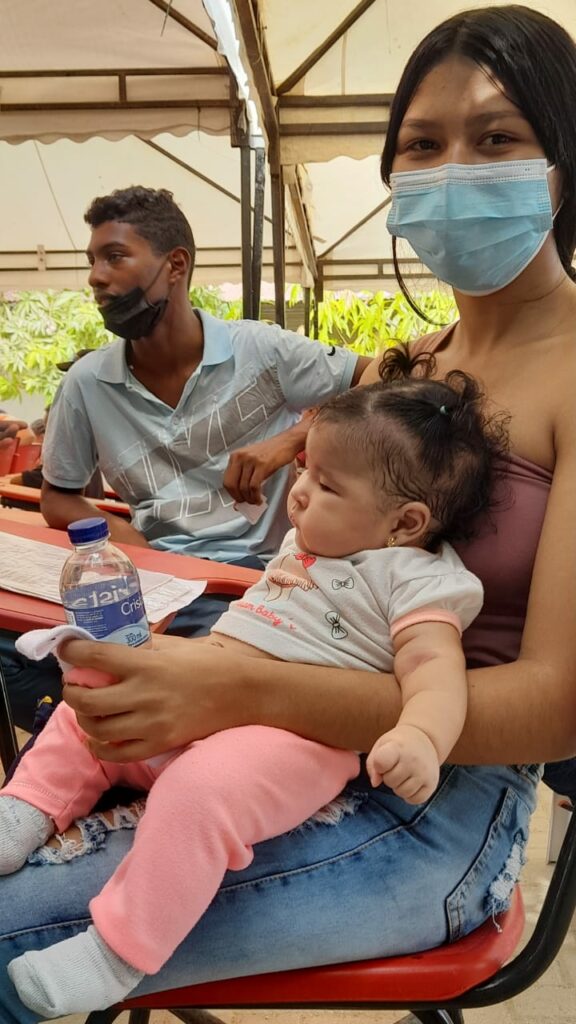Between 2015 and 2021, more than 1.7 million Venezuelan migrants and refugees sought safety in Colombia.[1] Leaving homes, careers, and communities behind, migrants face many challenges, including lack of access to basic services, such as proper healthcare.
Acogida, a new program funded by the U.S. Department of State’s Bureau of Population, Refugees, and Migration, and implemented by Blumont, aims to improve protection and assistance for Venezuelan migrants and host communities in Colombia. Meeting vulnerable communities’ critical needs – like healthcare – is the priority.
In partnership with two local organizations, teams operate mobile health clinics around Colombia. Venezolanos en Barranquilla, an organization that advocates for Venezuelans’ rights and implements community outreach activities, is helping to coordinate events and spread awareness of available services. Patrulla Aérea Colombiana, transports medical volunteers and supplies to the events.

Wendy, a Venezuelan migrant, and her partner Jairo visited a healthcare event to treat back pain.
Since the program started in September 2021, we have organized eight free, healthcare events for vulnerable communities throughout Colombia. Events have reached more than 6,800 people of all ages, 73 percent of which are Venezuelan migrants. People come to the health events for a range of free services including vaccinations, eye exams, dental work, pre-natal care, and pediatrics.
In April, Wendy, a migrant from Venezuela, accompanied her husband Jairo to a healthcare event in the city of Ciénaga seeking help with a back injury. Living in a remote area, it is difficult for Jairo to even access treatment. The healthcare event, according to Wendy, was easier to get to. “I’m taking advantage of [this event],” she said. “It is beneficial for the community, since there are many people around here who are displaced.”
At the pop-up clinic that day, Julia, who is from Venezuela, made appointments for herself and her two young children. Back home, she said, she had no access to healthcare. Her visit in April with a doctor was the first medical appointment she has had in more than five years.
Gadi, a 10-year-old Venezuelan girl, was another patient at the event. She and her mother arrived in Ciénaga two years ago and are starting to connect more with the local community. They came to have Gadi’s eyes evaluated since she was having trouble seeing. Gadi’s mother said she was relieved that someone was attending to her daughter’s needs and found the Colombian medical staff was very attentive and welcoming.

Julia and her daughter at the healthcare event in Cienaga, Colombia.
In the first year of the Acogida program, more than 50,000 people like Julia, Wendy, Jairo, and Gadi will receive critical assistance through community interventions. In addition to healthcare, we help migrant families integrate into their host communities by connecting them to services for migration, education, and child protection. Teams use the health events as an opportunity to spread awareness about the availability of other national services.
“My smile today,” Gadi’s mother said, “means that I feel more integrated into this community. They are taking into account my needs as a migrant, because as migrants we came here from another country to seek a better quality of life, especially for our children.”



